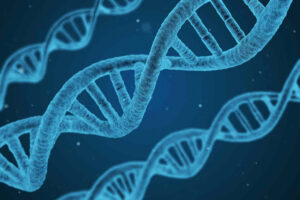 Nutritional Epigenetics: How Nutrition Influences Gene Expression and Health
Nutritional Epigenetics: How Nutrition Influences Gene Expression and Health
Nutrigenomics is a biological science that studies how nutrition affects gene expression and health. It is based on the idea that different foods and nutrients can modulate the activity of genes involved in various biological processes, such as metabolism, inflammation, immunity, and cancer. Nutrigenomics also explores how individual genetic variations can influence the response to dietary interventions and the risk of developing certain diseases.
One of the mechanisms by which nutrition can affect gene expression is through epigenetics. Epigenetics refers to changes in the structure or function of DNA that do not alter the genetic code itself but affect how genes are turned on or off. Epigenetic modifications can be influenced by environmental factors, such as diet, stress, toxins, and aging. Some examples of epigenetic modifications are DNA methylation, histone acetylation, and microRNA expression.
Nutritional epigenetics is a subcategory of nutrigenomics that focuses on the effects of bioactive food components on epigenetic events. For instance, some studies have shown that folate, vitamin B12, tea polyphenols, glucosinolates in cruciferous vegetables, and other dietary compounds have anticarcinogenic properties because of their relationship to DNA methylation. DNA methylation is a process that adds a methyl group to a cytosine base in DNA, which can reduce or activate gene expression. Abnormal DNA methylation patterns have been associated with various diseases, such as cancer, diabetes, and neurodegenerative disorders.
Nutrigenomics and nutritional epigenetics have important implications for personalized nutrition. Personalized nutrition is a concept that aims to provide dietary recommendations based on individual characteristics, such as genetic makeup, metabolic profile, health status, and lifestyle preferences. By understanding how different foods and nutrients interact with specific genes and epigenetic markers, personalized nutrition can help optimize health outcomes and prevent or treat diseases.
Cancer is a complex disease that involves multiple genetic and epigenetic factors. Genetics refers to the inherited variations in DNA sequences that can affect the risk, development, and progression of cancer. Epigenetics refers to the reversible and heritable modifications of DNA and histones that can alter gene expression without changing the DNA sequence. Nutrigenomics studies how nutrients and dietary components interact with genes and epigenetic mechanisms to influence health and disease, especially cancer. Nutrigenomics can provide insights into the molecular relationships between nutrients and genes, as well as the effects of dietary components on the profiles of transcripts, proteins, and metabolites. Nutrigenomics can also help identify gene targets that regulate cell and tissue-specific pathways involved in cancer and develop diagnostic strategies to control clinical heterogeneity.
One goal of nutrigenomics in cancer is to prevent cancer by modulating the internal terrain, environment, and nutrients–gene interactions that influence the cancer process. These interactions are affected by genetic variations in human populations, epigenetic modifications that selectively and permanently alter gene expression, complex interactions among dietary components, and heterogeneity of cells within a tumor. For example, some nutrients and bioactive food compounds can modulate DNA methylation.
Some examples of nutrients and bioactive food compounds that have a role in cancer prevention through epigenetic mechanisms are omega-3 fatty acids, dietary polyphenols, minerals, and vitamins. Omega-3 fatty acids are essential fatty acids that have anti-inflammatory and anti-cancer properties. They can modulate gene expression by affecting nuclear receptors, transcription factors and signaling pathways, without involving DNA methylation. Dietary polyphenols are phytochemicals that have antioxidant and anti-cancer properties. They can modulate gene expression by affecting DNA methylation and chromatin remodeling. Some examples of dietary polyphenols are curcumin, resveratrol, epigallocatechin-3-gallate (EGCG), genistein and quercetin. These polyphenols have been shown to play a role in prevention or inhibit several types of cancers, such as oral, breast, skin, esophageal, colorectal, prostate, pancreatic and lung cancers. Minerals and vitamins are essential micronutrients that engage in various metabolic processes. Some minerals and vitamins that have a role in cancer prevention through epigenetic mechanisms are zinc, selenium, folate, and multivitamins. Zinc is a cofactor for many enzymes involved in DNA synthesis and repair. It has anticancer properties by affecting DNA methylation and histone modifications. Selenium is a trace element that has antioxidant and anticancer properties. It can modulate gene expression by affecting DNA methylation and histone modifications. Folate is a B vitamin that participates in one-carbon metabolism. It can modulate gene expression by affecting DNA methylation. Multivitamins are supplements that contain various vitamins and minerals. They can modulate gene expression by affecting DNA methylation.
In conclusion, nutrigenomics is a promising field that can provide insights into the genetics and epigenetics of cancer, as well as the potential of dietary interventions to prevent or treat cancer. By understanding how nutrients and dietary components interact with genes and epigenetic mechanisms, nutrigenomics can help develop personalized nutrition strategies based on individual genetic profiles and epigenetic signatures.
References:
Omega 3 and 6 Polyunsaturated Fatty Acids, Obesity, and Cancer. Nutrients. 2020 Sep; 12(9):2751 PMDI 32927614
Anticancer Effects of Green Tea Polyphenols Against Prostate Cancer. Molecules. 2019 Jan 7;24 (1)193 PMID 30621039
Role of Zinc in Immune System and Anticancer Defense Mechanism. Nutrients. 2019 Sept 22; 11(10) 2273 PMID 31546724
Nutritional Epigenetics and Phytochemicals in Cancer Formation. J AM Nutr Assoc. 2022 Nov 23 PMID 36416668
Argot, J. dan Shrestha, A. (2005). Folate: methods of analysis. Trends in Food Science and Technology 16: 253–266.
Baines, M., Kredan, M.B., Usher, J., Davison, A., Higgins, G., Taylor, W., West, C., Fraser, W.D. dan Ranganath, L.R. (2007). The association of homocysteine and its determinants MTHFR genotype, folate, vitamin B12 and vitamin B6 with bone mineral density in postmenopausal British women. Bone 40: 730–736.


